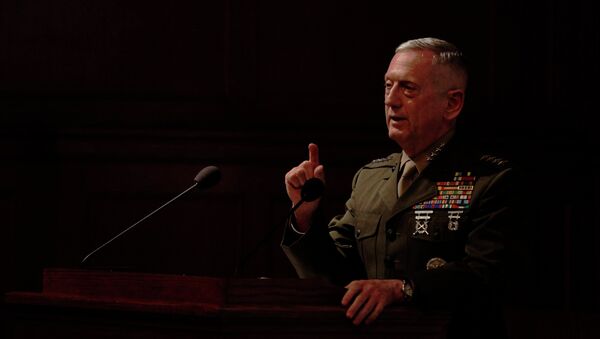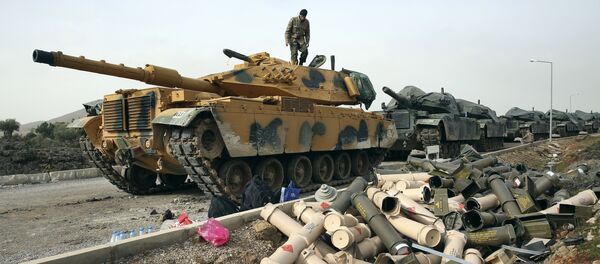US President Donald Trump announced on December 19 that the 2,000 US forces in Syria would be returning home in the next 60 to 100 days. Immediately, two groups of people became enraged: neoconservatives on the far right, who favour greater involvement in the Syrian conflict, and liberals angry that Trump was betraying US Kurdish allies to Daesh, the Russians, the Iranians and the Syrians.
Mattis in particular was opposed to the withdrawal, Sputnik reported, which seemed to catch him and others by surprise. The US has established over a dozen bases in Syria in the past few years, most in the northeast and southeast of the country. Some are outposts, but others are large airfields, particularly the bases at At-Tanf, Deir ez-Zor and Abu Hajar Airbase, the latter two of which have long runways capable of servicing the largest US cargo planes.
Peter Ford, the former UK ambassador to Syria, told Radio Sputnik earlier this month that they were "Bagram-style bases" comparable to the huge US airfield in Afghanistan that has formed the keystone of its operations in the country.
Radio Sputnik's Loud and Clear spoke with Jacqueline Luqman, co-editor-in-chief of Luqman Nation, about Mattis' resignation, the US withdrawal from Syria, and the strange political bedfellows it has produced.
Luqman said the strange juxtaposition of conservatives seeking to withdraw from Syria as progressive liberals scream for the US to continue its military occupation of a foreign country was like "living in bizarro upside-down world."
"If you're anti-imperialist and anti-war, it really shouldn't matter who gets us out of a combat situation. But the problem is the so-called liberals and the so-called progressives are so anti-Trump, that's the only thing they focus on. They're angry that it's Trump who pulled the troops out. I have no love for the man, but he is getting us out of a quagmire that we should never have been in. This does meet the goals of the anti-imperialist, anti-war community, of which we are a part, and we're glad for that. We're not celebrating Mattis saying, ‘Well I'm going to quit because you're not going to let me keep this war going on.'"
Luqman recalled Mattis' role in the destruction of the Iraqi city of Fallujah in late 2004, a battle the US Army and Marine Corps called Operation Phantom Fury. As a US Marine Corps general, Mattis helped plan the destruction of the city, which dates to Talmudic times, in a battle that saw heavy use of banned chemical weapons, including depleted uranium and white phosphorus, as well as the Mk 77 bomb, the successor to the infamous napalm bombs of prior US wars.
As a result of the use of depleted uranium, a generation of parents have given birth to deformed children with rare diseases, or been rendered outright sterile, due to irradiation from the rounds, which are made from the spent fuel of nuclear power stations.
"These people are not understanding the sides that they're choosing because they really haven't paid attention to actual politics and policies that shaped where we are now. They're making everything about Trump, but this has been going on for years," Luqman told hosts John Kiriakou and Brian Becker. "This has been the tactical mistake that the left is making."




